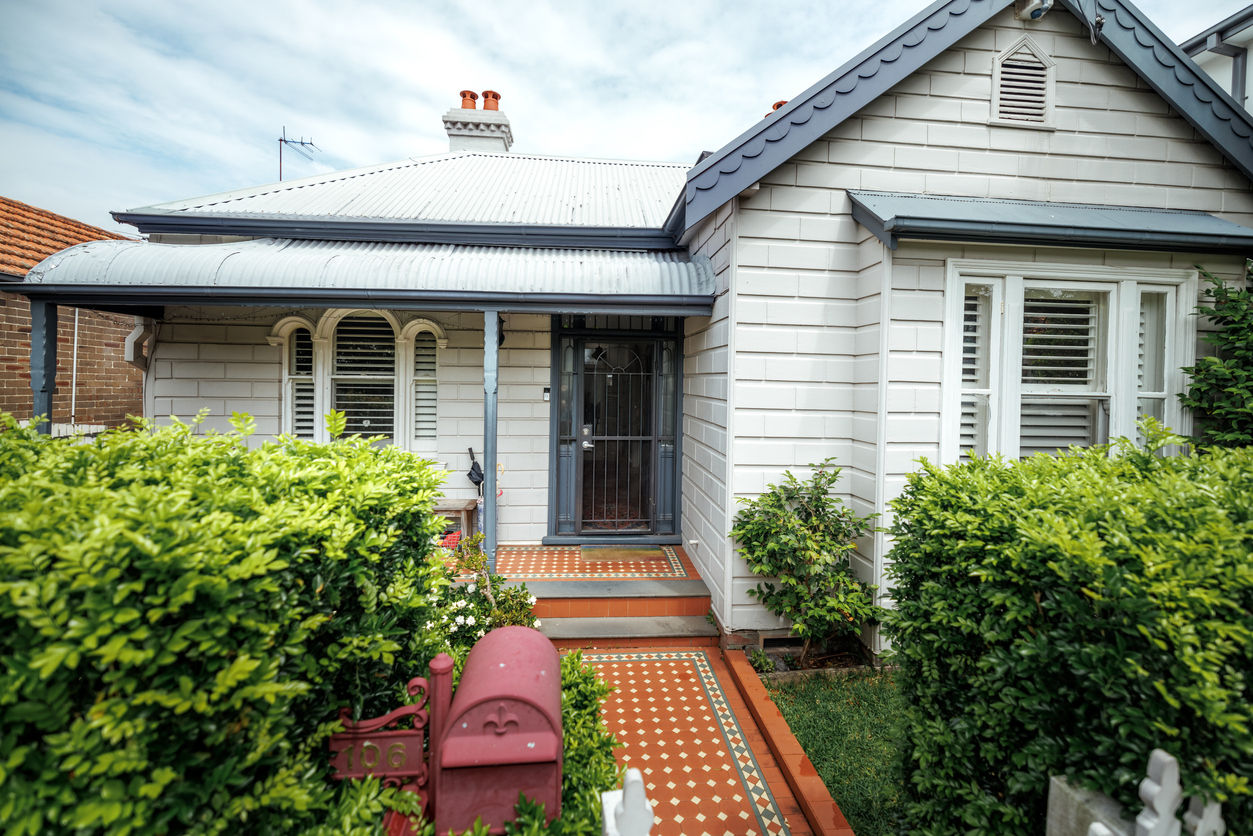- Should We Sell the House During Our Divorce?
- What Happens to A Joint Mortgage During a Divorce?
- What Happens If Your Ex Refuses to Sell Your House?
- Emotionally Detach From Your Home Before Selling
- Get Your House Ready for Sale
- Tips For Selling Faster
- Let FastExpert Help You Sell Your Home Fast After a Divorce
How to Sell Your House Fast After a Divorce

Selling a house is already a difficult and emotional process, but selling a house after a divorce can be even harder. Not only are you dealing with the emotional toll of the breakup, but you also have to figure out the logistics of selling your home.
In this guide to selling your home quickly after a divorce, we’re going to share some expert tips to help you through the process. We’ll give key tips for what to expect, how to negotiate with your ex-spouse, and what you need to do to get your home ready for sale.
Keep in mind that you may need to go through a separate process to negotiate the sale of rental properties. This guide covers mostly what to expect during the divorce process for your primary residence.
With the right guidance and preparation, selling your house after a divorce doesn’t have to be stressful. Let’s get started!
Should We Sell the House During Our Divorce?
First and foremost, you and your ex-spouse need to decide whether or not you want to sell the house during your divorce. If you’re both on good terms, you may be able to work together to list and sell the property. However, if there’s bad blood between you, it may be best to sell the house before the divorce is finalized.
Things to Consider
As you and your ex-spouse discuss the details of dividing property and whether to sell your home during the divorce, there are a few key things to keep in mind:
- Family – If you have children, you’ll need to consider their best interests. Selling the house may be the best option if it means your children can stay in their current school district. On the other hand, if one parent plans to move out of state, it may make more sense for the other parent to keep the house.
- Financial Security – You’ll also need to think about finances and what’s best for your long-term financial security. Selling the house may be the best way to pay off debts and split the proceeds equally. Or, if one spouse is planning to keep the house, they may need to buy out the other spouse’s share.
- Market Conditions – Divorces don’t follow the real estate market. It can take months (or even years) to finalize a divorce, so you’ll need to be prepared for whatever the market conditions are at the time of sale.
- Future Plans – Be sure to consider your future plans and what’s best for your family when deciding whether or not to sell your house during your divorce.
If you do decide to sell the house during your divorce, you’ll need to come to an agreement on how to split the proceeds. In most cases, the proceeds from the sale of the house will be split evenly between the two parties.
However, if one spouse owned the property before the marriage, they may be entitled to a larger share of the sale. It’s important to discuss this with your lawyer so that you can come to a fair agreement.
If you decide not to sell the house during your divorce, you’ll need to figure out what to do with the property. One option is for one spouse to buy out the other’s share of the house. However, this can be difficult to arrange, especially if you’re not on good terms.
Another option is to keep the house until it can be sold later down the line. This is often the best option if you have children, as it can provide stability during a difficult time. However, it’s important to be aware that this will tie up both of your finances until the property is sold.
No matter what you decide to do with the house, it’s important to come to an agreement that you’re both happy with. Once you’ve decided what to do with the property, you can move on to the next step in selling your home after a divorce.
What Happens to the House During a Divorce?
There are a number of roads that you can take during or after a divorce. These include:
- You both of you agree to continue to stay in the house (with mutual agreement)
- One of you remains in the home (one party buying the other out)
- You both sell the home and divide the proceeds.
There’s one very common and very scary question that arises here…
Can Your Ex-Partner Sell the House Without You?
The answer is no. Legally, both of you have the right to remain in the home, with or without mutual consent, until the divorce is finalized.
Even when finalized, neither party is obligated to sell the property and continue living with a mutual consent agreement.
What Happens to A Joint Mortgage During a Divorce?
Simply put, the mortgage still needs to be paid.
In the eyes of that law, it doesn’t matter who’s living at the property. Both parties are liable for the debt on the house.
It may be an uncomfortable topic, but it is definitely in your interest to let your lender know of your divorce – even if you don’t think there will be any delay in payments.
Lenders are usually sympathetic to your situation and could give you some breathing space.
Most couples do one of the following options:
- Sell the property and pay off the mortgage (beware of prepayment penalties)
- Keep the property and pay the mortgage
- One party buys the other party out and keeps making the payments
Whichever option you prefer, make sure you communicate with your ex-partner so you can reach an agreement that will work for both of you.
If you’re not on civil terms with your ex, this conversation may be worth having your lawyer present for.
Is It Better to Sell the House During or After Divorce?
There’s no easy answer to this question. It really depends on your individual circumstances. If you’re on good terms with your ex-spouse, selling the house during your divorce may be the best option. However, if you’re not on good terms, it may be better to sell the house after the divorce is finalized.
Here are a few things to consider when making your decision:
- If you sell the house during your divorce, you’ll need to split the proceeds with your ex-spouse. If you sell the house after the divorce is finalized, you’ll get to keep all of the proceeds.
- If you sell the house during your divorce, you’ll need to come to an agreement with your ex-spouse on how to list and sell the property. If you sell the house after the divorce is finalized, you’ll be in complete control of the sale.
- If you have children, selling the house during your divorce may be disruptive. If you wait until after the divorce is finalized, you can keep the house until your children are grown and then sell it.
Ultimately, there’s no right or wrong answer. It’s important to weigh all of your options and make the decision that’s best for you and your family.
What Happens If Your Ex Refuses to Sell Your House?
If you and your ex-spouse can’t agree on whether or not to sell the house, it’s important to consult with a lawyer. They can help you figure out what your options are and how to proceed.
In some cases, one spouse may be ordered by the court to sell the house. However, this is usually only ordered in cases where the couple has a significant amount of equity in the property.
If your ex-spouse refuses to sell the house, you may have to wait until the divorce is finalized to take action. Once the divorce is finalized, you’ll be able to list and sell the property on your own.
Alternatively, your ex-spouse may be open to a home buyout or a divorce lien.
How Does a Home Buyout Work?
A home buyout is when one spouse buys out the other’s share of the house. This can be a complicated process, especially if you’re not on good terms with your ex-spouse.
If you decide to do a home buyout, you’ll need to come to an agreement on the price of the property. Once you’ve agreed on a price, you’ll need to get a loan to cover the cost of the buyout.
If you can’t afford to buy out your ex-spouse’s share of the house, you may have to sell the property. This is usually only an option if you have equity in the property.
It’s important to consult with a lawyer before you agree to a home buyout. They can help you understand the process and make sure that you’re getting a fair deal.
How is House Buyout Calculated in a Divorce?
The house buyout calculation is based on the equity in the property. Equity is the difference between the fair market value of the property and the outstanding balance on your mortgage.
For example, let’s say that your house is worth $200,000 and you have a mortgage balance of $150,000. This means that you have $50,000 in equity.
If you and your ex-spouse agree to a 50/50 split of the equity, you’ll each get $25,000 from the sale of the house.
What is a Divorce Lien?
A divorce lien is a legal claim on your property that’s filed by your ex-spouse. This allows them to collect a portion of the proceeds from the sale of your house when it sells.
Divorce liens are typically used when one spouse wants to keep the house and the other doesn’t have the funds to buy them out.
If you have a divorce lien on your property, you’ll need to pay your ex-spouse when you sell the house. The amount that you’ll owe is typically based on the equity in the property.
It’s important to consult with a lawyer before agreeing to a divorce lien. They can help you understand the process and make sure that you’re getting a fair deal.
Emotionally Detach From Your Home Before Selling
Going through a divorce can be an emotionally charged experience, and when you’re trying to sell your home, it’s important to keep a cool head. It’s easy to get attached to your home, but you need to remember that it’s just a house. It’s not worth getting upset over; what matters is getting the best possible price for it so you can move on with your life.
To emotionally detach from your home, try to think of it as a piece of property that you’re selling, rather than a place where you have memories. It may help to pack up some of your personal belongings and put them into storage so you don’t have to look at them every day. You should also avoid getting too attached to any potential buyers; remember, they’re just looking for a good deal, not your approval.
Get Your House Ready for Sale
Once you’ve decided to sell the house, it’s time to start getting it ready for sale. This includes decluttering, deep cleaning, and making any necessary repairs, among other things.
If you’re selling the house during your divorce, you’ll need to figure out who will be responsible for these tasks. In most cases, it’s best to split the responsibilities so that both parties are equally involved.
If you’re selling the house after the divorce is finalized, you’ll be solely responsible for getting it ready for sale. Regardless of who is responsible for getting the house ready, it’s important to make sure that it’s in tip-top shape before listing it for sale.
The better condition the property is in, the easier it will be to sell. And, if you’re hoping to get top dollar for your home, you’ll need to put in the extra effort to make sure it’s show-ready.
Declutter Your Home
The first step in getting your house ready for sale is to declutter it. This means getting rid of any personal items, such as family photos, collections, and keepsakes.
It’s important to make your house look as spacious and inviting as possible. Buyers want to be able to envision themselves living in the property, and this can be difficult if the space is crammed full of your stuff.
If you’re selling the house during your divorce, you’ll need to decide who will get which items. In most cases, it’s best to split up larger items, such as furniture, and give each spouse a chance to take what they want.
For smaller items, such as knick-knacks and decorations, you may want to have a garage sale. This is a great way to get rid of unwanted items and make some extra cash.
Deep Clean Your Home
Once you’ve decluttered your home, it’s time to give it a deep cleaning. This means cleaning the floors, carpets, windows, and walls from top to bottom.
You may want to hire a professional cleaning service to help you with this task. They’ll be able to clean your home quickly and thoroughly, ensuring it’s ready for showings.
If you’re selling the house during your divorce, you’ll need to decide who will be responsible for the deep clean. In most cases, it’s best to split the cost of the professional cleaning service between both parties.
Make Necessary Repairs
In addition to decluttering and deep cleaning your home, you’ll also need to make any necessary repairs. This includes fixing any broken appliances, leaks, and damages.
It’s important to make all of the necessary repairs before listing your house for sale. Buyers will be looking for any excuse to lowball their offer, and even small problems can be used as bargaining chips.
If you’re selling the house during your divorce, you’ll need to decide who will pay for the repairs. In most cases, it’s best to split the cost between both parties.
Of course, if there’s something that needs to be fixed that was caused by one party (such as damage from an argument), then that person should be responsible for the repairs.
If you’re selling the house after the divorce is finalized, you’ll be solely responsible for making all of the necessary repairs.
Tips For Selling Faster
There is a balance that needs to be found between conveying urgency to sell and sounding downright desperate to sell. During such an emotional time, you’ll really want the guidance of a real estate agent to help you find that balance and word things in such a manner.
The following are some additional tips to help you sell your home faster:
Price It Right From the Start
Overpricing your home is one of the biggest mistakes you can make. Not only will it discourage buyers, but it will also make your home sit on the market for longer than it would otherwise.
If you’re selling the house during your divorce, you’ll need to come to an agreement on what price to list it for. In most cases, it’s best to consult with a real estate agent to get an accurate estimate of your home’s value.
Invest in Professional Home Staging
Home staging is the process of making your home look its best for showings. This usually involves renting furniture and accessories, as well as decluttering and deep cleaning the property.
While it’s not necessary to stage your home, it can definitely help you sell it faster. In fact, homes that are staged typically sell 88% faster than those that aren’t.
If you’re selling the house during your divorce, you’ll need to decide who will be responsible for staging the property. In most cases, it’s best to split the cost of professional home staging between both parties.
Use Professional Photography
Professional real estate photography can make a world of difference when selling your home. These days, potential buyers start their home search online, so it’s important to make sure your listing looks its best.
Make It Easy to Show
It can be difficult to coordinate showings when you have kids and a job. If possible, make arrangements for someone to watch your kids or take them with you when you leave for showings.
You should also try to be as flexible as possible when scheduling showings. The more available you are, the easier it will be to sell your home.
Hide Any Pet Damage
If you have pets, there’s a good chance that they’ve caused some damage to your home. Before listing your house for sale, make sure to repair any pet-related damage, such as scratches on the floors or walls.
You should also try to hide any evidence of pets, such as pet beds and toys. Buyers who don’t have pets may not be willing to overlook pet damage, no matter how minor it is.
Clean Up the Yard
First impressions are important, and buyers will form an opinion of your home before they even step foot inside. Make sure to clean up your yard, including trimming the grass and removing any debris.
You should also take a look at your home from the street and see if there’s anything you can do to improve its curb appeal. Adding some flowers or potted plants to the front porch is a quick and easy way to make your home more inviting.
Let FastExpert Help You Sell Your Home Fast After a Divorce
FastExpert has the “fast” in it for a reason. We know time is of the essence in any real estate transaction, but it’s especially true when selling a home after a divorce.
Our network of top-rated real estate agents are experts at helping people sell their homes fast. We’ll help you find the right agent for your situation and make sure you’re getting the best possible deal.
If you’re ready to get started, simply enter your zip code below. We’ll match you with up to 3 agents in your area who will provide you with a free consultation and competitive custom quote.





